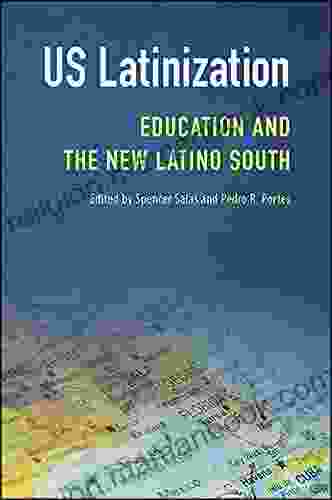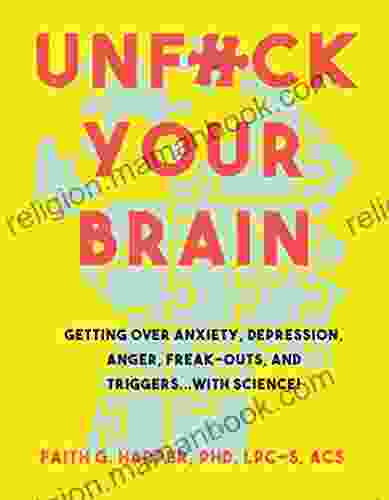Cooperation and Discord in the World Political Economy: A Historical Review

The world political economy is a complex and ever-changing system of relationships between states, markets, and societies. These relationships are characterized by both cooperation and discord, and the balance between these two forces has a profound impact on the global economy and on the world at large.
4.4 out of 5
| Language | : | English |
| File size | : | 3300 KB |
| Text-to-Speech | : | Enabled |
| Enhanced typesetting | : | Enabled |
| Word Wise | : | Enabled |
| Print length | : | 292 pages |
| Screen Reader | : | Supported |
In this article, we will explore the historical evolution of cooperation and discord in the world political economy, from the early days of globalization to the present day. We will examine the factors that have driven cooperation and discord, as well as the impact that these forces have had on the global economy and on the world at large.
The Early Days of Globalization
The early days of globalization were characterized by a high degree of cooperation between states. This cooperation was driven by a number of factors, including the need for security, the desire for economic growth, and the spread of liberal ideas.
The need for security was a major factor in the development of cooperation between states in the early days of globalization. As states became increasingly interconnected, they realized that they needed to work together to maintain peace and stability. This led to the development of a number of international institutions, such as the League of Nations and the United Nations, which were designed to promote cooperation between states.
The desire for economic growth was another major factor in the development of cooperation between states in the early days of globalization. As states became increasingly industrialized, they realized that they needed to cooperate with each other in order to access raw materials and markets. This led to the development of a number of international economic organizations, such as the World Bank and the International Monetary Fund, which were designed to promote economic cooperation between states.
The spread of liberal ideas was also a major factor in the development of cooperation between states in the early days of globalization. Liberal ideas, such as the belief in individual liberty, democracy, and free trade, led to the development of a number of international organizations, such as the World Trade Organization, which were designed to promote cooperation between states on the basis of these principles.
The Rise of Nationalism
The late 19th and early 20th centuries saw the rise of nationalism, which led to a decline in cooperation between states. Nationalism is a political ideology that emphasizes the importance of national identity and sovereignty. It led to a number of conflicts between states, including the First World War and the Second World War.
The rise of nationalism was driven by a number of factors, including the industrial revolution, the spread of education, and the growth of mass media. The industrial revolution led to the development of new technologies, which made it possible for states to produce more goods and services than ever before. This led to increased competition between states for resources and markets.
The spread of education led to the development of a more informed and literate population. This led to an increase in political awareness and a greater demand for self-determination.
The growth of mass media led to the development of a more interconnected world. This led to a greater awareness of the differences between states and a greater desire for national identity.
The Cold War
The Cold War was a period of intense rivalry between the United States and the Soviet Union. This rivalry led to a number of conflicts, including the Korean War and the Vietnam War.
The Cold War was driven by a number of factors, including the ideological differences between the United States and the Soviet Union, the desire for global dominance, and the fear of nuclear war.
The ideological differences between the United States and the Soviet Union were a major factor in the Cold War. The United States was a capitalist democracy, while the Soviet Union was a communist dictatorship. These two systems of government were fundamentally incompatible, and they led to a number of conflicts between the two superpowers.
The desire for global dominance was also a major factor in the Cold War. The United States and the Soviet Union both wanted to be the world's leading superpower. This led to a number of conflicts between the two superpowers, as they competed for control of resources and markets.
The fear of nuclear war was also a major factor in the Cold War. The United States and the Soviet Union both had nuclear weapons, and they both feared that a nuclear war would destroy the world. This fear led to a number of arms control agreements between the two superpowers, but it also led to a number of crises, such as the Cuban Missile Crisis.
The End of the Cold War
The Cold War ended in 1991, with the collapse of the Soviet Union. This led to a period of increased cooperation between states. This cooperation was driven by a number of factors, including the end of the ideological conflict between the United States and the Soviet Union, the desire for economic growth, and the spread of democratic values.
The end of the ideological conflict between the United States and the Soviet Union was a major factor in the increase in cooperation between states after the Cold War. The collapse of the Soviet Union led to the end of the communist threat, and this removed a major source of tension between the United States and its allies.
The desire for economic growth was also a major factor in the increase in cooperation between states after the Cold War. The end of the Cold War led to a period of global economic growth, as states were able to cooperate more closely on economic issues.
The spread of democratic values was also a major factor in the increase in cooperation between states after the Cold War. The collapse of the Soviet Union led to the spread of democracy in Eastern Europe and Central Asia. This led to a number of new democracies, which were more willing to cooperate with each other and with the United States.
The 21st Century
The 21st century has been a period of both cooperation and discord in the world political economy. On the one hand, there has been a continued increase in cooperation between states. This cooperation has been driven by a number of factors, including the rise of global trade, the spread of technology, and the growing interdependence of states.
On the other hand, there has also been a rise in discord in the world political economy. This discord has been driven by a number of factors, including the rise of nationalism, the spread of protectionism, and the growth of inequality.
The rise of nationalism has been a major factor in the discord in the world political economy in the 21st century. Nationalism has led to a number of conflicts between states, including the war in Iraq and the war in Afghanistan.
The spread of protectionism has also been a major factor in the discord in the world political economy in the 21st century. Protectionism is a trade policy that restricts the import of goods and services from other countries. It has been used by a number of states to protect their domestic industries from foreign competition.
The growth of inequality has also been a major factor in the discord in the world political economy in the 21st century. Inequality has been increasing both within countries and between countries. This has led to a number of social and political problems, which have contributed to the discord in the world political economy.
The world political economy is a complex and ever-changing system of relationships between states, markets, and societies. These relationships are characterized by both cooperation and discord, and the balance between these two forces has a profound impact on the global economy and on the world at large.
In this article, we have explored the historical evolution of cooperation and discord in the world political economy, from the early days of globalization to the present day. We have examined the factors that have driven cooperation and discord, as well as the impact that these forces have had on the global economy and on the world at large.
The future of cooperation and discord in the world political economy is uncertain. However, it is clear that these two forces will continue to shape the global economy and the world at large for years to come.
4.4 out of 5
| Language | : | English |
| File size | : | 3300 KB |
| Text-to-Speech | : | Enabled |
| Enhanced typesetting | : | Enabled |
| Word Wise | : | Enabled |
| Print length | : | 292 pages |
| Screen Reader | : | Supported |
Do you want to contribute by writing guest posts on this blog?
Please contact us and send us a resume of previous articles that you have written.
 Top Book
Top Book Novel
Novel Fiction
Fiction Nonfiction
Nonfiction Literature
Literature Paperback
Paperback Hardcover
Hardcover E-book
E-book Audiobook
Audiobook Bestseller
Bestseller Classic
Classic Mystery
Mystery Thriller
Thriller Romance
Romance Fantasy
Fantasy Science Fiction
Science Fiction Biography
Biography Memoir
Memoir Autobiography
Autobiography Poetry
Poetry Drama
Drama Historical Fiction
Historical Fiction Self-help
Self-help Young Adult
Young Adult Childrens Books
Childrens Books Graphic Novel
Graphic Novel Anthology
Anthology Series
Series Encyclopedia
Encyclopedia Reference
Reference Guidebook
Guidebook Textbook
Textbook Workbook
Workbook Journal
Journal Diary
Diary Manuscript
Manuscript Folio
Folio Pulp Fiction
Pulp Fiction Short Stories
Short Stories Fairy Tales
Fairy Tales Fables
Fables Mythology
Mythology Philosophy
Philosophy Religion
Religion Spirituality
Spirituality Essays
Essays Critique
Critique Commentary
Commentary Glossary
Glossary Bibliography
Bibliography Index
Index Table of Contents
Table of Contents Preface
Preface Introduction
Introduction Foreword
Foreword Afterword
Afterword Appendices
Appendices Annotations
Annotations Footnotes
Footnotes Epilogue
Epilogue Prologue
Prologue Mary Diyon
Mary Diyon Aeschylus
Aeschylus H B Barstrum
H B Barstrum Justin Mason
Justin Mason Mariana Mazzucato
Mariana Mazzucato Jenna Jacob
Jenna Jacob Serhii Plokhy
Serhii Plokhy Penny Haw
Penny Haw Zach Abraham
Zach Abraham Sally Larsen
Sally Larsen Harry Turtledove
Harry Turtledove Hiroaki Samura
Hiroaki Samura Jason Worthley
Jason Worthley Ted West
Ted West Elisient Maeve Vernon
Elisient Maeve Vernon Tatsuro Fujihira
Tatsuro Fujihira Paul Ham
Paul Ham Samir Amin
Samir Amin Leah Fleming
Leah Fleming Renata Pavrey
Renata Pavrey
Light bulbAdvertise smarter! Our strategic ad space ensures maximum exposure. Reserve your spot today!

 Kyle PowellUnveiling the Wuhan Cover-Up: A Comprehensive Investigation into the Origins...
Kyle PowellUnveiling the Wuhan Cover-Up: A Comprehensive Investigation into the Origins...
 Jeffrey CoxExplosive Flavors From The Southwestern Kitchen: A Culinary Odyssey into the...
Jeffrey CoxExplosive Flavors From The Southwestern Kitchen: A Culinary Odyssey into the...
 Jules VerneUs Latinization Education And The New Latino South: Exploring the Impact of...
Jules VerneUs Latinization Education And The New Latino South: Exploring the Impact of... Glen PowellFollow ·10.7k
Glen PowellFollow ·10.7k Art MitchellFollow ·2.3k
Art MitchellFollow ·2.3k Edison MitchellFollow ·11.4k
Edison MitchellFollow ·11.4k Travis FosterFollow ·2.4k
Travis FosterFollow ·2.4k Dustin RichardsonFollow ·13.4k
Dustin RichardsonFollow ·13.4k Edgar Allan PoeFollow ·16.2k
Edgar Allan PoeFollow ·16.2k James HayesFollow ·8k
James HayesFollow ·8k Jeremy CookFollow ·19.1k
Jeremy CookFollow ·19.1k

 David Peterson
David PetersonUnveiling Eleven of the Wheel of Time: A Journey Through...
In the vast and intricate...

 Curtis Stewart
Curtis StewartEbony Jay Rice: A Rising Star in the Entertainment...
Ebony Jay Rice is a force to be reckoned...

 Matt Reed
Matt ReedNavigating Mental Health with Science: Overcoming...
Mental health is an integral part of...

 Guillermo Blair
Guillermo BlairFormer Magistrate's Poetic Reflections on Love and...
In the hallowed halls...

 Corey Green
Corey GreenOf the Dead: William Burroughs' Post-Beat Masterpiece
William S. Burroughs' Of the...
4.4 out of 5
| Language | : | English |
| File size | : | 3300 KB |
| Text-to-Speech | : | Enabled |
| Enhanced typesetting | : | Enabled |
| Word Wise | : | Enabled |
| Print length | : | 292 pages |
| Screen Reader | : | Supported |







